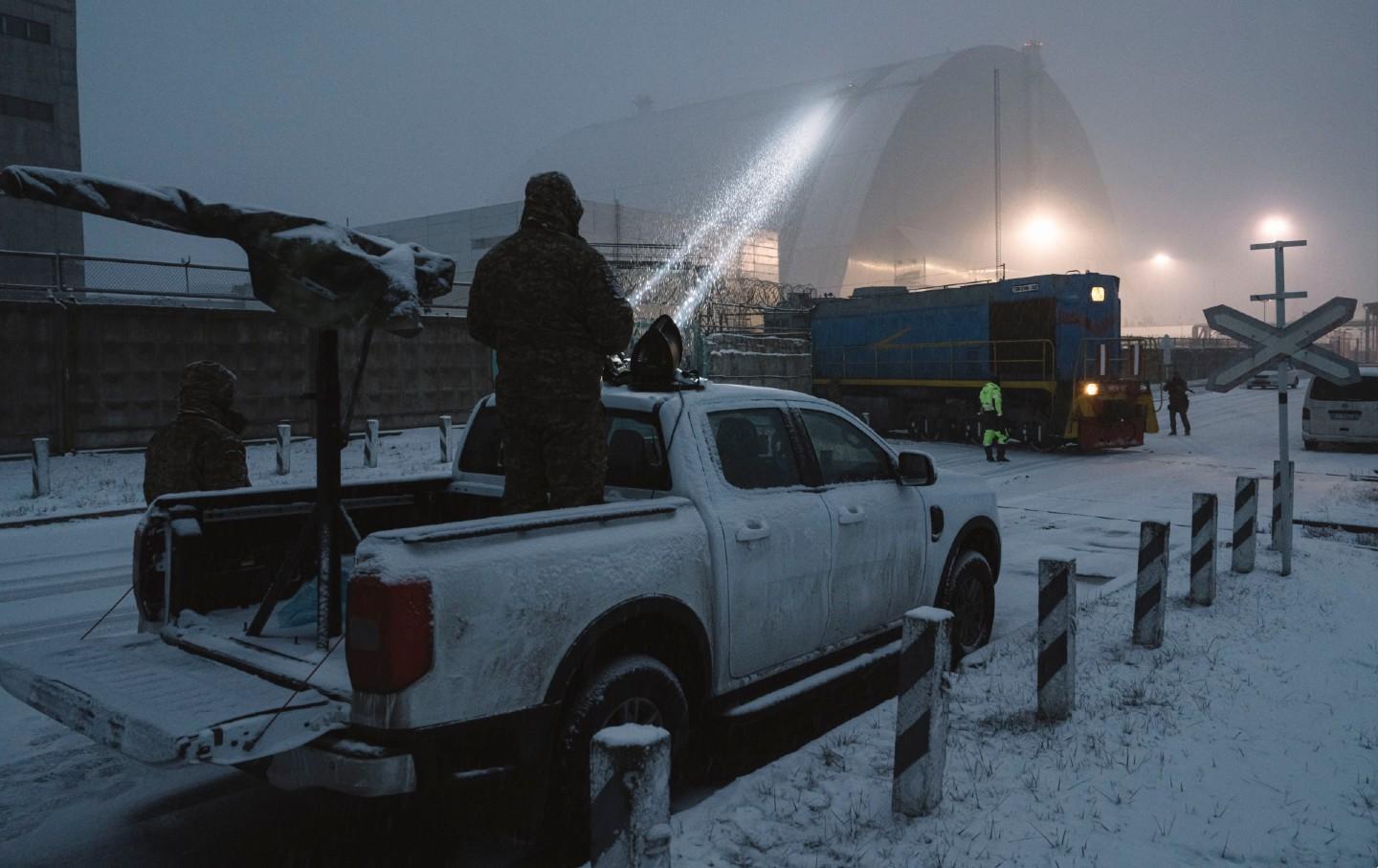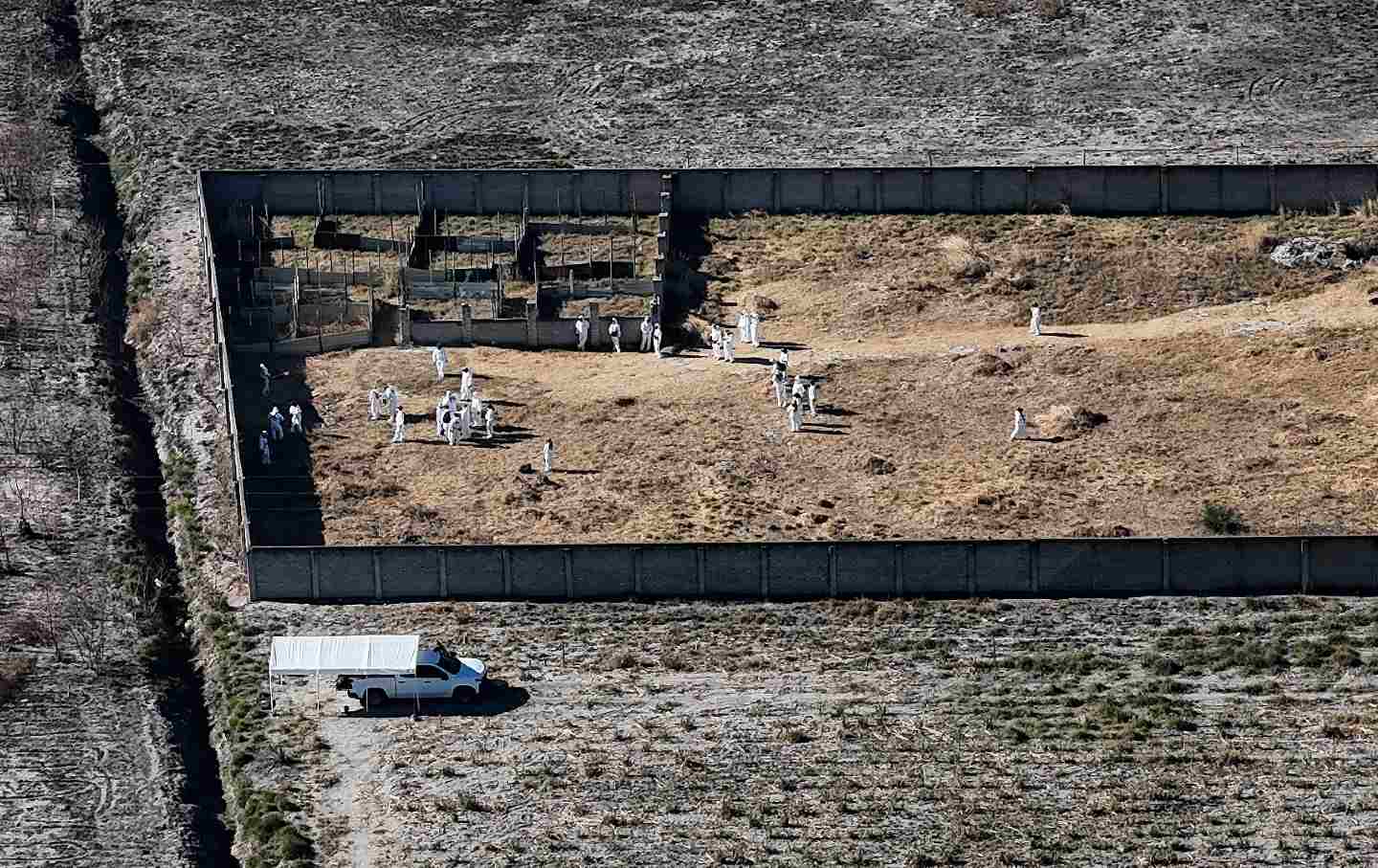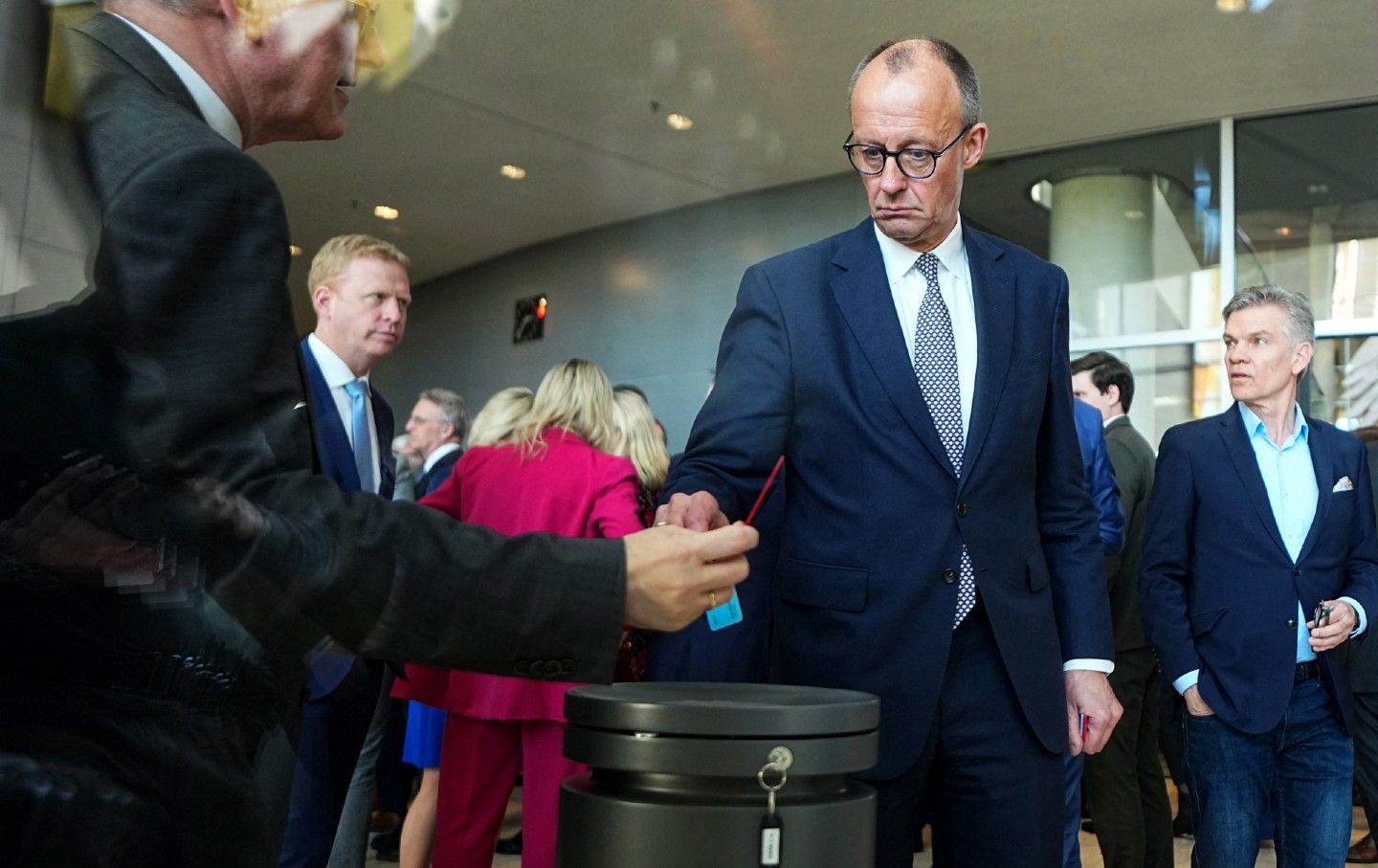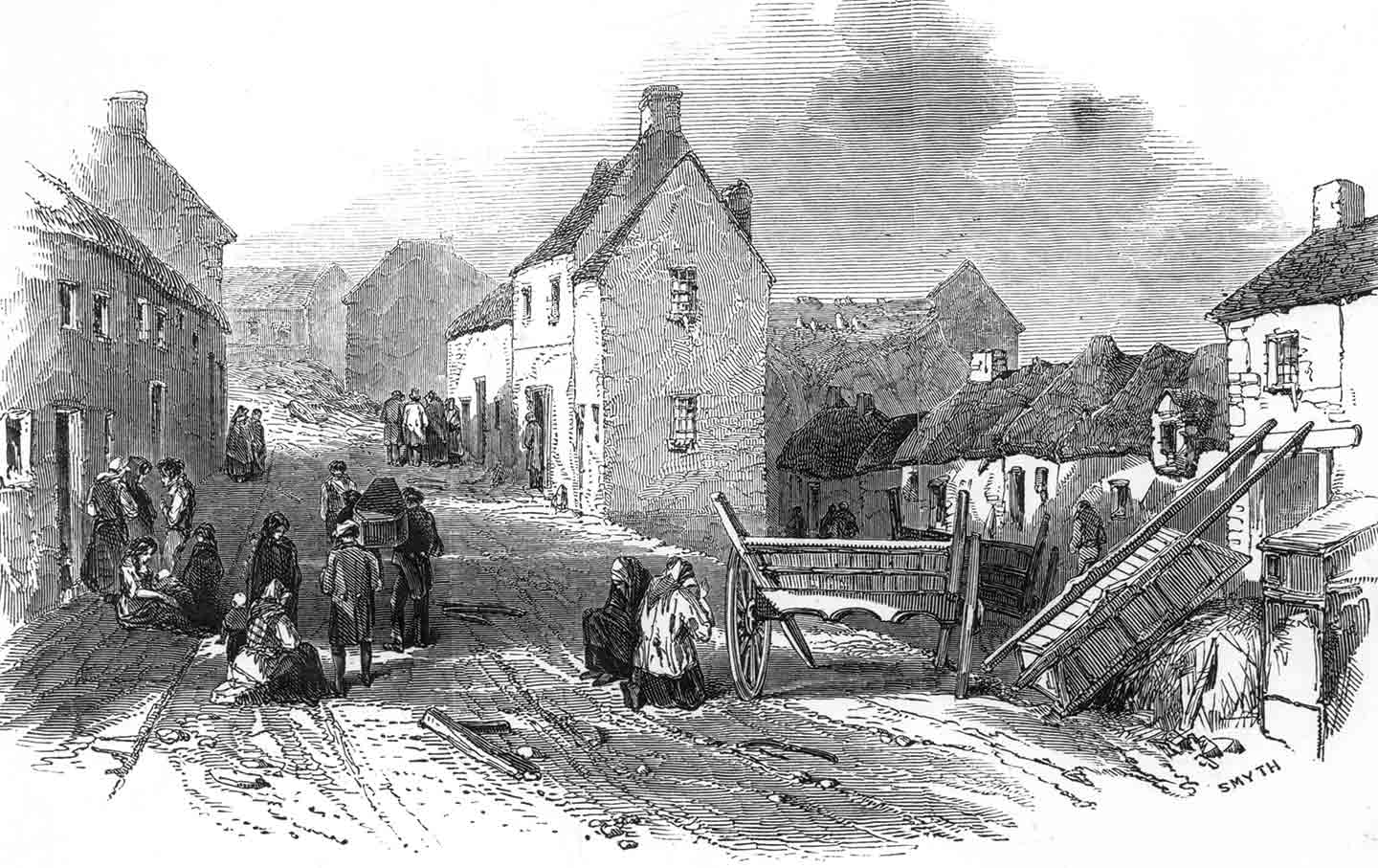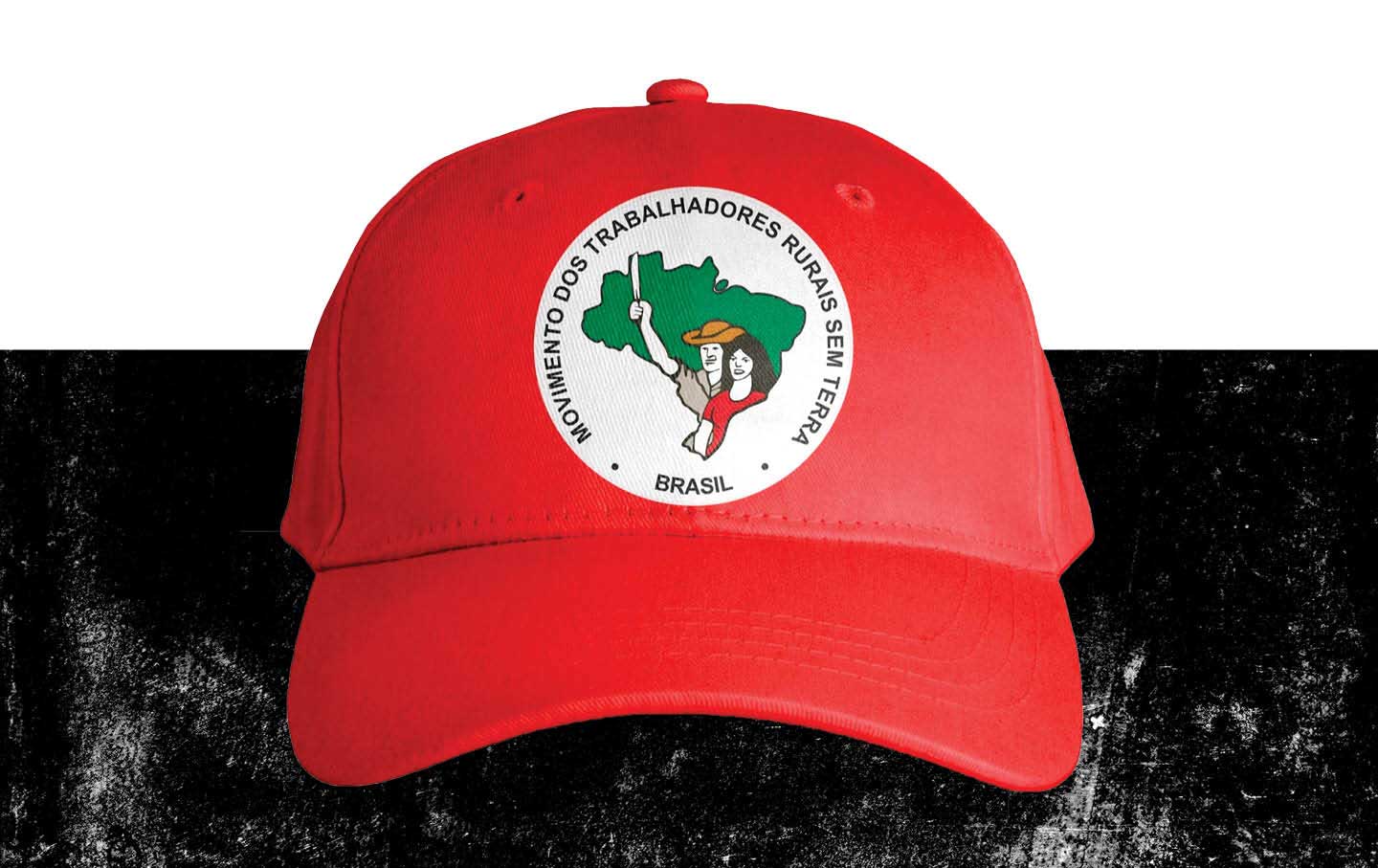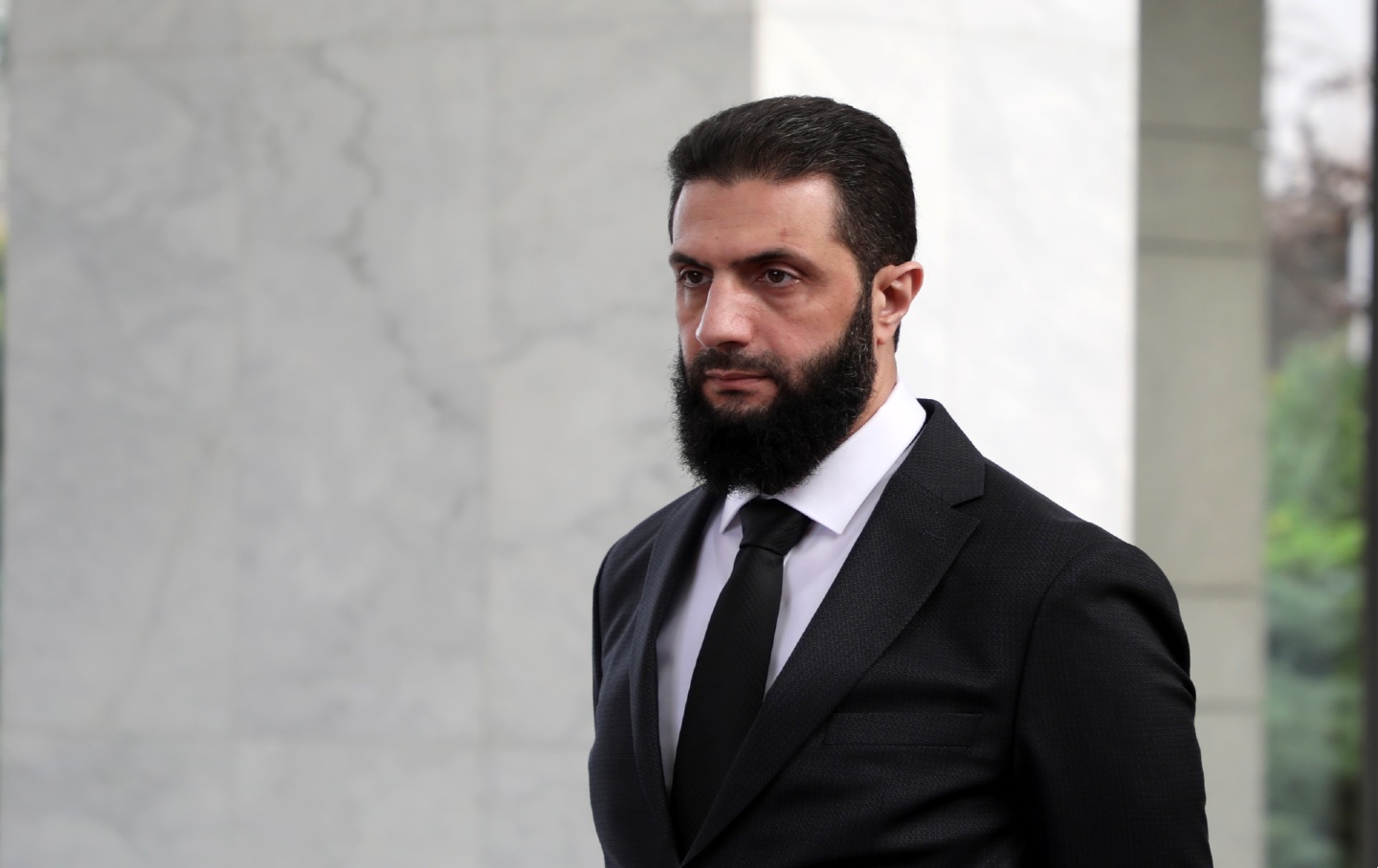“I Heard a Machine Gun Being Loaded”: A Harrowing Escape From Gaza
I knew the journey might be dangerous. I never thought it would be this cruel.
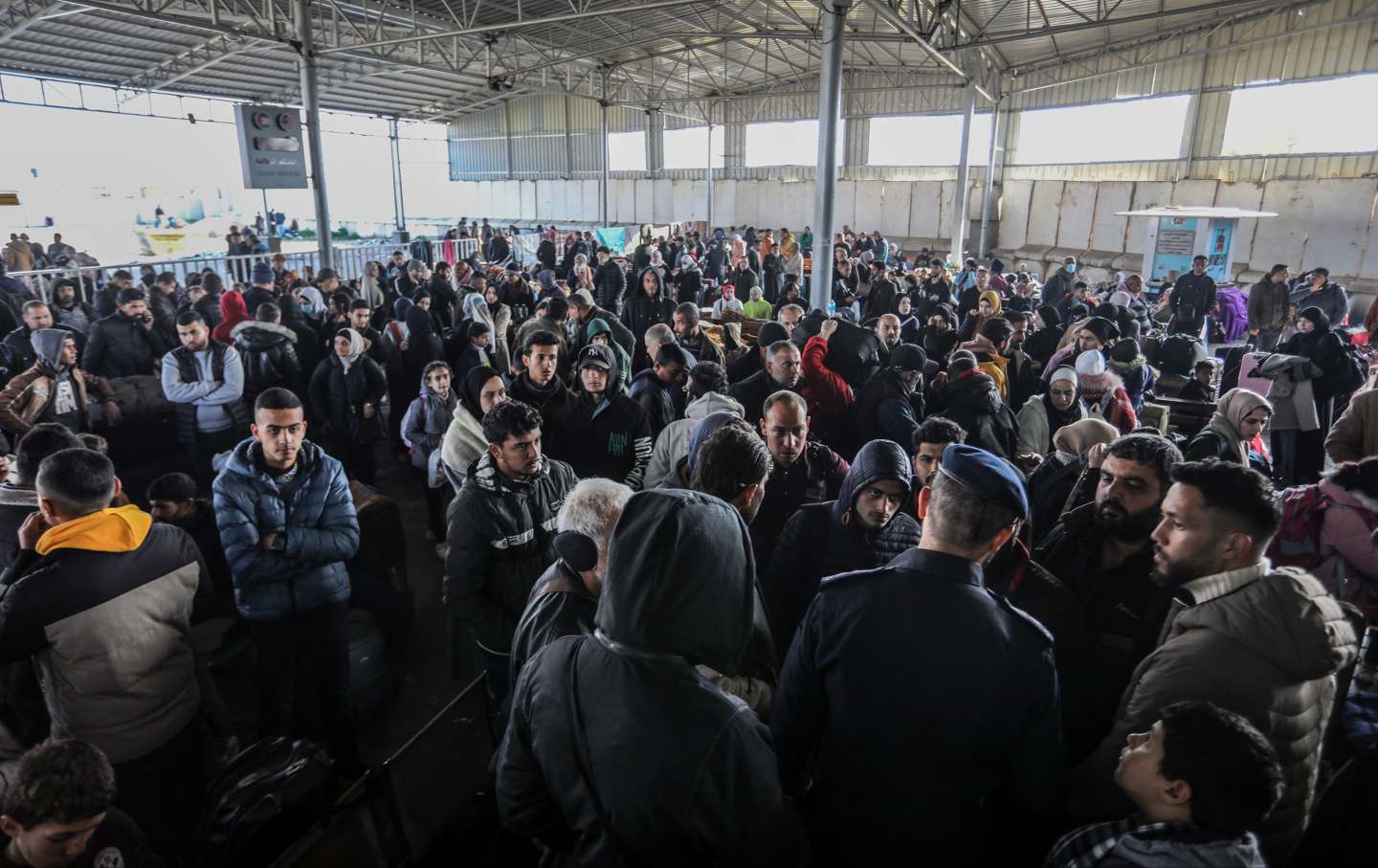
“Take off your clothes, Habibi! Down on your knees, and put down everything you have on the ground,” the Israeli soldier abruptly ordered. There were dozens of them, all heavily armed. As I complied, they blindfolded and handcuffed me. I could sense them all around me. Then I heard a machine gun being loaded.
Beneath my bare skin, the sand felt like burning charcoal.
It was the middle of April. I had come to a military checkpoint along the Netzarim Corridor with my wife, Asmaa, and our 2½-year-old son, Rafik, on our journey from Gaza City to the southern city of Rafah. After months of bombardment, displacement, injury, illness, and starvation, we were fleeing to Egypt. Asmaa was five months pregnant. We were leaving the rest of our families behind.
We knew that there might be danger at this checkpoint. I had heard more than once that people moving south suffered extreme mistreatment here. Just weeks before, the notorious “flour massacre,” in which Israeli soldiers killed dozens of Palestinians trying to get humanitarian aid, had taken place nearby. But I never thought that crossing the checkpoint would be this cruel, at least for me—a young father with a wife and a small child and another on the way.
Now, as I struggled beneath my blindfold, I understood that the stories I had heard had not prepared me for the reality of this place.
I could hear other people a few meters away screaming for mercy. “I swear I did not do anything! Why are you doing this to me?” one person cried. Some of the voices were women’s.
Their pleas were ignored. Just as I began to imagine horrible scenarios of what might happen to me next, I was ordered to stand up. There was a military outpost nearby, and the soldiers led me to what seemed like a room there and pushed my face up against the wall. I could hear them whispering to each other in Hebrew. The sound of the machine gun being loaded returned. Although I couldn’t see it, I could feel it pointed at me. One definitely knows when the moment of death is imminent.
In that instant, all 25 years of my life flashed before my eyes—from early childhood to college friendships and graduation, to the moment I held my baby minutes after his birth. This felt more torturous than any bullet could.
Whether by luck or by fate, I wasn’t shot but finally sent outside. I felt fortunate to be under the sun again. Sitting on the scorching sand for what felt like an eternity was preferable to standing in front of the barrel of an M-16. I heard a soldier call out to Asmaa and Rafik, ordering them to continue walking south. Then I heard them say that if our son kept trying to run toward me, they would shoot him. When my wife pleaded for my release, she too was threatened. It seemed all too easy for them to lift their guns and pull the trigger. Power, in their hands, was absolute.
For three hours, I was left in the sun. Every time I tried to move to relieve my aching body, a shout in Hebrew immediately came my way, followed by harsh scolding and physical assault.
The soldiers asked me if I had taken part in any “acts of terrorism” against Israel. They wanted to know what I thought about October 7, and who I blamed for everything that had happened since. At times, I would tremble or stutter, and they would hit me on the back of my head or my shoulder, sometimes with the butt of their guns, to force me to speak.
I never stopped thinking about my wife, my son, and our unborn child. I had no way of knowing what was happening to them. The soldiers told me they would arrest them, beat them, and never let me see them again unless I cooperated.
Then, suddenly, the soldiers decided to let me go. Apparently, I had convinced them I wasn’t a terrorist—just a journalist, which, in Israel’s eyes, is almost as bad.
By this time, Asmaa and Rafik had walked all the way to Nuseirat, about 15 kilometers away. I immediately called Asmaa to let her know I was coming. A few hours later, we were reunited. But our journey had only just begun.
As a 25-year-old born and raised in Gaza City, my experience with forced displacement had been limited to black-and-white documentaries, college history books, and my grandmother’s tales. I appreciated her stories the most because they were authentic, vivid, and, more importantly, dead honest.
She told me, more than once, about the time the army broke into their house in Yaffa, allegedly hunting down resistance members, before she and my grandfather were forcibly kicked out of their own home. Later that day, according to my grandmother’s story, the army claimed the house as theirs. My family fled to Gaza and never saw that house again.
I never thought that I would repeat this history myself one day. But, in the days before I finally got ready to flee Gaza, I accepted that I was living out my own version of the Nakba.
In one way, that made sense. Ever since October, it had felt like all of us in Gaza were being forced to experience every possible horror that war is capable of producing. Why should exile not be one of those horrors?
Surviving all that was like an act of science fiction. To repeatedly escape the bombing from one place to another while knowing all too well that there is no safe place in Gaza was a living nightmare.
What’s more, by the time we made plans to leave, we had already lost so much of what had connected us to our homeland. During the early days of the war, the shortage in the medical care system and the lack of essential daily supplies like food and water became noticeable. After the beginning of the Israeli ground offensive, what I thought was too hard to be real had become our everyday reality. We had to flee our home, the first of about 13 times we were displaced over seven months. We wound up sleeping on the floor inside a school corridor and waking up with our growling stomachs searching through nearby rubble for anything that could defeat our hunger and protect us from the biting cold.
After around two months, we were forced to move again as the military ground forces approached the city center of Gaza City. Heavy and continuous artillery fire and intense air shelling further turned Gaza into a blackened city—gardens, schools, public spaces, and residential compounds alike. Living through the daily struggle of survival meant abandoning every sort of normalcy in life. Lining up for hours to receive my family’s share of water, despite it being contaminated and causing bacterial infections and stomach disease, became my number one priority.
I also had to search for anything that could be called food. Most of the time, my day would end with empty hands.
Being a father to a two-and-a-half-year-old was another kind of psychological and mental torture. For weeks, my child would cry himself to sleep, hungry and struggling with dehydration. Weeks of me forcing my kid to drink contaminated water and eat animal-feed barley, with hopes that he would stop crying of hunger and prayers that he would make it to the next day.
Alongside my concerns for my personal and family safety, I had to navigate my professional responsibilities as a writer and reporter.
Everything people learn in journalism school about risk management and safety in the field feels like mere theories on paper in Gaza. Being a journalist during this war means continuing to write your story with one hand on your phone because the second air strike on the targeted residential area scattered metal and glass shrapnel in your arm and destroyed your laptop. It means waiting for the drone to lift higher in the sky so you can escape its surveillance radar and bullets that target every moving object, especially those marked with “PRESS” on their chests.
It means that you could become the story before you even think of one to report. It means reporting on famine and displacement while you neither have a place to sleep—because your house was bombed—or food to eat.
After internet connections began to gradually return, I circulated pleas on social media for help to evacuate myself and my family to safety. It was time to go.
Evacuation is not easy. Apart from anything, the crowdfunding effort, which successfully raised the necessary money, was my only means to have our names registered on the evacuation list for people leaving Gaza. It cost $5,000 per adult, paid to an Egyptian tourism agency connected with the Egyptian border patrol that helped facilitate the exit of Palestinians from Gaza during the war.
Leaving Gaza felt like one of the most difficult decisions I could ever make, but in reality, it wasn’t as impossible as I had feared. The place where I grew up and experienced the happiest days and memories of my life was gone. All that we would be leaving was suffering and slow death. I worried we would lose our sense of belonging in a foreign land, no matter where we moved, but what could be worse than what we had been through already? We had been deprived of everything—even our simplest rights to exist and live a just and dignified life.
By the time my network of friends and colleagues managed to gather the donations and funds we needed to exit the borders, I had made peace with the idea of leaving. But acceptance was one thing. Actually leaving was another. I was particularly worried about the almost impossible route ahead: commuting south from the north of Gaza. It was a full day’s walk from our shelter in Gaza City to Rafah.
Despite the daunting journey ahead, we began our commute. Knowing how directly journalists have been targeted by Israel, and having faced repeated threats from the military to cease my journalism, getting detained or even killed was a possibility that weighed heavily on me. Either option simply meant the end of my life.
Yet, these fears were not the most difficult and scariest part. The real challenge was crossing through the Netzarim checkpoint. Arriving at the outpost marked the beginning of another episode of cruelty and pain.
Having sheltered in northern Gaza for six months before heading south, I could not have imagined what the rest of the Strip would look like after all the air strikes and ground invasions it had endured.
Nothing was even remotely recognizable. Gaza’s once vibrant seashore had been completely destroyed, reduced to blackened rubble. The smell was agonizing. Dead bodies were scattered about, and animals’ rotting flesh was exposed. More painful to see were the shreds of babies’ clothing and children’s toys.
Family and friends in the south had described the evacuation and continued displacement in Rafah as a haunting echo of the 1948 Nakba. But even so, the sight of tents blanketing vast areas there was hard to believe when we arrived. Hundreds of thousands of people were living without any semblance of a normal routine. They were merely surviving, completely reliant on foreign aid. Necessities like food and clean water were scarce, and the medical system could only provide basic first aid.
We spent three days in one of those tents alongside Asmaa’s relatives, who had been in Rafah for some time. A man in a nearby tent told me he had been displaced more than nine times within Rafah. Privacy was impossible; only a few meters separated us from the next tent. I could hear a crying child, apparently an infant, terrified by the explosions that lit up the camp during the night and calling for his mom to feel safe. An elderly woman seemed unable to sleep; through the tent cloth, we could hear her cry from the pain of her amputated leg. Her son said they had not had any luck finding painkillers or antiseptics for her wound, which, exposed to the relentless sun, had become infected.
The night before our names appeared on the exit list, we ran out of drinking water. When a relative tried to venture out to search for some, a drone flew around the camp, trapping everyone inside their tents.
Popular
“swipe left below to view more authors”Swipe →The next day, we finally made it through the separation gate and into Egypt. Even that was not easy. To get your name registered on the evacuation list costs money—$5,000 per adult, paid to an Egyptian tourism agency connected with the Egyptian security apparatus. Thanks to the help of friends and supporters, we had managed to pay the bill.
After we arrived on Egyptian soil, we endured a challenging two-day wait filled with paperwork, passport stamping, and security checks. Only after completing these formalities could we begin our journey to Cairo.
What caught my attention as we drove away from Gaza was the gradual disappearance of the buzz of Israeli drones, which had flown day and night over our heads since October 7.
Even more amazing were the supermarkets filled with fruits, vegetables, and dairy products that we hadn’t seen or tasted for more than six months.
Now, weeks later, we are living somewhat normally, but we are not yet healed. Despite the fact that we are now away from air strikes and no longer have to run for shelter because of ground troops marching close to our tent, our struggles are far from over. The images of death are still vivid in our minds. We live close to Cairo International Airport, and the sound of planes landing and taking off is very triggering for me, my baby boy, and Asmaa. We closely follow the news of the deaths and daily hardships of our people and loved ones still trapped in a tragic war—a genocide that has wiped out entire families and deprived Gazans of every semblance of life and normalcy they ever had.
Escaping Gaza has left me with mixed feelings. On the one hand, I had managed to survive a genocide that had starved and almost killed me and my family. But I was also saying goodbye to a place I had loved for my entire life. The moment we crossed into Egypt, we were destined for a life as exiles—refugees with no clear destination, searching for a place to feel at home again. Leaving behind everything we had built—every dream and ambition—was dreadful. We were forced to start a new life from scratch.
I left Gaza because I want to keep talking about it. I want to keep my home—Palestine—in my life and work. To do that, I have to stay alive, and that got harder every day in Gaza. As Palestinian journalists, we are deprived of any protection that international law or press credentials should provide. I have lost many colleagues and loved ones simply because they took on the responsibility of highlighting the struggles of their fellow Palestinians.
I remember that after a house we were staying in was bombed as we slept, I reported on the tragic event by using my phone’s voice command. My hands were injured, and I had serious wounds from glass and metal shrapnel all over my back. I could not endure such agonies forever.
I left Gaza so I could continue to call for freedom and justice and honor the memory of my fellow journalists who have been killed in the conflict. I left Gaza to keep it and myself and my family alive. Otherwise, we all could have been long gone.

